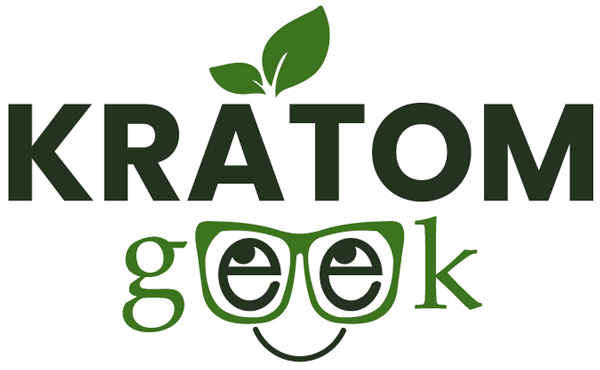The American Kratom Association (AKA) held a virtual town hall meeting a week ago through a Zoom call. The meeting was meant to address the attacks that kratom has been facing from our government. But it’s okay if you missed it. I’ll speak to the most significant aspect of the meeting today. But if you want to hear it in its entirety, then there’s a link to the video call on their Facebook Page that has the complete discussion for you to watch.
Peter Candland, the Executive Director of the AKA; Matt Salmon, the AKA Chairman of the Board; and Mac Haddow, the AKA’s Senior Fellow on Public Policy, were all present on the call. But Mac had the most airtime, discussing the move that the AKA plans to make by presenting another Federal Kratom Consumer Protection Act (KCPA) to Congress. Passing the bill would put the Food and Drug Administration (FDA) in check. And it needs to. That government agency has been warring with kratom and its consumers for almost a decade now.
The FDA has been battling kratom since it initiated its first import alert in 2012. In 2016, they made a submission to the DEA to schedule kratom. Then they renewed their effort to ban kratom in 2017. Since then, the FDA has tried to demonize kratom through misinformation tactics.
Besides providing protection to consumers of kratom, the Federal KCPA will do three important things in our government. And we’ll go over each of those in detail.
A Regulatory Review Will Be Implemented on the FDA
The first thing a Federal KCPA bill would do in our government is initiate a regulatory review of FDA’s position on kratom. It would force the FDA to finally demonstrate to our representatives the agency’s interim policy of enforcement discretion concerning kratom as a dietary ingredient and allowing it to be marketed to consumers. To be honest, kratom shouldn’t even have to deal with this nonsense. The Dietary Supplement Health and Education Act (DSHEA) was enacted in 1994. But kratom was sold to consumers in the US before then. Plenty of headshops had kratom products in stock in the early 90s. So as it stands, kratom should have been placed on the pre-DSHEA list of grandfathered supplements. But the FDA refuses to acknowledge that fact.
So that leaves kratom companies looking for recourse to fix the complication. Several kratom companies have provided the FDA with their applications to place kratom as a new dietary ingredient in dietary supplements. And the agency should allow it to go through for kratom manufacturers that can prove they’re producing safe products and demonstrate the efficacy and the safety of those products. However, the FDA Office of Dietary Supplements has repeatedly refused to allow credible applications that have been submitted to be approved. And it all stems from the opposition at the Commissioner’s office level. Hence, there’s absolutely no opportunity for kratom to be recognized as a new dietary ingredient with the way the FDA abuses its power. So the KCPA will withdraw that authority.
FDA and HHS Would Need to Remove Scheduling Request
The next thing the Federal KCPA would change within our government would be to require the FDA and Health and Human Services (HHS) to remove their recommendation with the Drug Enforcement Agency (DEA) for kratom to be placed on its scheduled list of illicit substances. There is no scientific evidence to support that kratom should be a Schedule I Substance. So that restriction would remain on the FDA and HHS until the studies that have been initiated by the National Institute on Drug Abuse (NIDA) are complete. After those studies are finished, the two agencies would need to provide proof from the research that shows kratom has a high potential for abuse.
The preliminary studies (animal studies: which are the gold standard for dietary supplements addiction liability) have already been performed on kratom, and all the evidence from those reports indicate that’s kratom does not have a high potential for abuse, contrary to what the FDA claims. And the AKA is confident that the current studies (funded by NIDA) that are outstanding will clearly show the same evidence once they are complete. But it may take NIDA up to 5 or 7 years to finish their scientific work. So the withdrawal for the recommendation for scheduling kratom would remain in effect until NIDA has the chance to complete the research and produce its reports.
Until that moment, kratom would remain unscheduled on the federal level, and the FDA would need to treat it like any other supplement on the market.
FDA Import Alerts on Kratom Would Have to Be Lifted
The final thing the KCPA would do is force the FDA to remove all of the import alerts the agency has placed on kratom. That would allow all shipments of kratom to once again enter our ports unless the FDA is able to identify specific exporters that are sending contaminated or adulterated kratom products to vendors. But we wouldn’t just take its word for it. The federal agency would need to provide laboratory evidence that any confiscated kratom was unsafe for the public to consume.
Since 2012, the FDA has had an import alert against kratom that abuses the agency’s authority, given to them by a statute. The kratom ban sweeps across the board of operations, lumping the entire industry together into the same pile of bad actors from specific companies, even though most kratom vendors utilize Good Manufacturing Practices (GMP) to produce safe products. So the FDA needs to prove, beyond the shadow of a doubt, they can provide the adequate information that gives a reasonable assurance that certain products present a significant or unreasonable risk of illness before imposing an import alert on any kratom.
For the fact remains that during the past eight years, when the FDA’s import alert has been active, a dramatic increase of kratom consumers has grown inside the States. And if kratom was as dangerous for consumption as the FDA claims, then the marketplace would have withered away instead of doing the exact opposite. And the FDA needs to concede they were wrong.
A Broken Government Needs Fixed
The concept of the KCPA is a marvelous piece of legislation. It would give kratom consumers protection on the federal level against shady kratom companies that aren’t looking out for the customer’s (or the industry’s) best interest. The bill would also step up to the plate and perform specific duties that the FDA should already be doing. (It’s a sad day when a non-profit organization wants to do more for the taxpayers of this country than our actual government does.) But I’m skeptical the bill has a chance in hell at getting passed. Don’t shoot the messenger, but our government appears to be broken at the moment.
That’s not a new turn of events, either. I can’t imagine a period since I’ve been born that the government was operating at full power. For the most part, Capitol Hill’s battery has been on its last couple of bars my entire life. So I don’t see them taking the initiative and passing anything that doesn’t directly correlate to a re-election agenda. Maybe that’s the skeptic in me. But I’m just calling it how I see it. However, that doesn’t mean we should give up hope. Congress might pull a shake and bake on the court. Hey, stranger things have happened.
But the AKA is fishing around the state legislators for bites on the local levels for individual KCPAs, so the kratom community still has some hope to cling to. Take comfort in that. It might be how we win this war.






